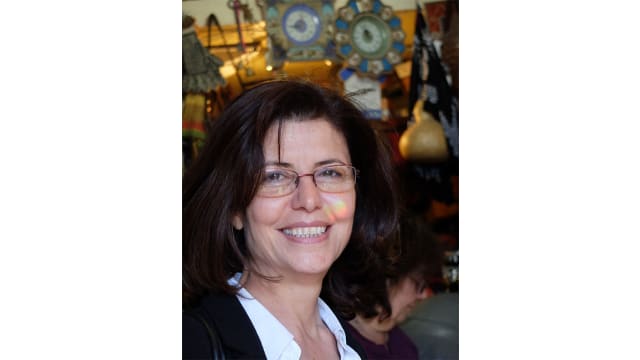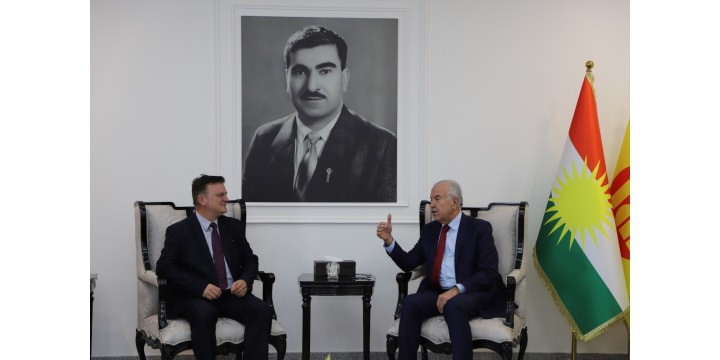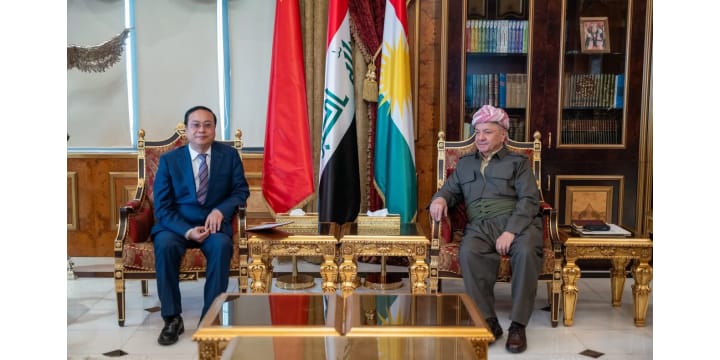
Achievements in Law, Policy and Practice in the Iraqi Kurdistan Region
repared by Dr Nazand Begikhani, Honorary Senior Research Fellow, University of Bristol & Visiting Professor, Sciences Po, Paris.
Achievements in Law, Policy and Practice in the Iraqi Kurdistan Region
In the last two decades, the Kurdistan Region of Iraq (KRI) has set up a progressive gender-related strategy, including legal reforms, social policy and the institutionalisation of gender issues.
The following are the main achievements and challenges faced:
I. Legal Reform
Since the beginning of 2000, the Kurdistan Regional Government (KRG) amended several articles of the Iraqi Penal Code of 1969 (IPC) and the Iraqi Personal Status (IPS) of 1959. The move was in response to and cooperation with women’s rights groups who had been campaigning against the Iraqi Laws, widely proven to legitimise women’s subjugation and inferiority.
The most significant initiatives concerned Articles 377, 128, 130 and 131 of the IPC. In 2002, the regional parliament passed Law No.14, relating to honour crimes. The amended Law removed ‘lenient punishment’ and considers crimes with the pretext of ‘honourable motivation’ as murder.
The amended law reads: ‘Crimes against women with the pretext of ‘honourable motivation’ will not be legally liable for lenient punishment and Articles 128, 130 and 131 of the Iraqi Penal Code number 111 of the year 1969 will not be implemented’.
In 2007, following recognition of the KRI by the Iraqi constitution, the regional parliament ratified the Justice Ministry Law No. 13, which, along with the Kurdistan Judicial Council, was designed to strengthen judicial authority across the Region.
In 2008, on the order of the Prime Minister Nechirvan Barzani (henceforth PM), a high commission was set up to review the IPS of 1959. Later that year, the regional parliament passed Law No. 15, by 35 votes to 30, making polygamy ‘conditional’. The new legislation stipulates that “marrying more than one woman is not allowed unless authorized by the judge”. The Law limits the circumstances under which a man may have more than one wife, permitting him to take a second wife, and no more as stipulated by the Shari’a, only when his first wife is unable to have children or suffers from a serious disease. It also mandates that a man cannot have a second wife if he has pledged in his first marriage contract never to take another wife.
Regarding equality in testimony, the new Law stipulates that “testimony of two witnesses having the qualification of legal competence, who have to bear witness for the marriage contract, in this paragraph men and women are equal”.
Regarding divorce, the new Law stipulates that “the wife can set as a condition the ability to divorce her husband within the marriage contract”.
And regarding guardianship, a paragraph has been added to Article 5 stipulating that “a mother shall be considered as a legal guardian if the father is dead or missing”.
In 2008, the regional parliament passed Law No. 6 on Preventing the Misuse of New Information Technologies with the aim of preventing digital violence, protecting victims and holding perpetrators accountable.
In 2009, the legal minimum quota of female parliamentarians was increased from 25 to 30 percent of the legislature.
In May 2009, the regional parliament passed Law No. 7 establishing “the Kurdistan Region- Iraq Judicial Institute”. This Law paved the way for women to become judges. Previously, there were no female judges in the KRI.
In June 2011, parliament took a major legal initiative in passing Combating Domestic Violence Law No. 8. The new Law addresses different forms of domestic violence, proscribing female genital mutilation, early and forced marriages. It also makes provision for a specialized court, empowering police units, health, social affairs, education ministries, and rehabilitation institutions to tackle gender-based violence (GBV) in a holistic approach.
II. Institutionalising Gender Issues in KRI
In addition to legal reforms, the KRG led by the then PM has institutionalised gender issues over the last two decades. Several official bodies were established aiming to integrate gender within government policy endorsing gender equality.
After the reunification of the two Kurdish administrations in 2005, the then PM appointed an Equality Advisor.
In 2005, by special order of the PM, an Equality Unit within the Council of Ministers was established.
In 2007, the PM co-opted a gender expert to work with him as his Senior Advisor on Higher Education and Gender (the appointment was made official in 2012).
In 2008, the then PM set up a High Commission to follow up violence against women (VAW), bringing together all related ministries, including education, justice, health, interior, planning, labour and social affairs along with senior health, police and justice professionals with the aim of addressing VAW with a holistic approach. The Commission met four times a year to tackle and monitor VAW in general and ‘Honour’-Based Violence (HBV) in particular.
Also in 2007, the Ministry of Sport and Youth, backed by PM Nechirvan Barzani, decided to celebrate International Day for the Elimination of Violence Against Women, launching a week-long campaign in the Kurdistan Region. The activities were conducted in coordination with various government bodies along with local and international NGOs as well as UN agencies. Since then, the KRG has been actively involved in celebrating the Day while reviewing its policies and practices. Since 2010, the High Council of Women’s Affairs has led the initiative.
At the first meeting of the High Commission, the then PM decided to establish the Directorate to Combat VAW with offices in the three governorates, Erbil, Sulaimanya and Duhok.
A highly significant contribution of the KRG was the initiative to establish women’s protection centers/shelters, creating and publicizing 14 emergency telephone lines for women to contact the police. Starting from 2007, the then PM established shelters in each of the three governorates. A further shelter for temporary accommodation in the Garmiyan area was set up in summer 2013.
Apart from providing long- and short-term protection for women at risk, the shelters offer legal advice and support to women, and also mediate with their families to settle cases. Part of the legal support offered consists of filing complaints in cases of murder when no-one from a victim’s family is prepared to do so. The process also includes hiring lawyers, accompanying women to court hearings and health centres, and coordinating with the crime investigation office (Begikhani et al, 2010 & 2015).
While launching the campaign for the Elimination of Violence Against Women in 2007, the PM addressed the conference with a challenging speech, saying: ‘We must admit that many injustices are committed against women in the name of religion or with the excuse of cultural or traditional practices. We feel that everyone in society has a duty to combat violations against women. What we ask for is equality, justice and respect for all human beings. […] The one-week campaign of the Elimination of Violence against Women is a step we initiated in the Region because we know we have a problem. This problem has many facets: cultural, religious, political, health, educational and social. […] We do not call for abandoning our old traditions and customs. We do not call for abandoning our religion or our heritage, which is a source of pride. But we have to know that certain issues relevant to women’s rights must change, and we have to achieve this and make progress in order to find a place in the modern world.’
Awarding Women’s Activists: Since November 2007, through the initiative of the then Ministry of Sport and Youth, an annual prize was awarded to the most active person (male or female) in the field of combating VAW. The ‘Protection of Women Award’ aimed “to encourage work towards equality and social justice”.3 The first ceremony was held at a conference during the annual week-long campaign, with speeches, sketches and songs challenging traditional norms. The first recipient was Ms Khandan Muhammad Jaza, who wrote a book based on ‘a social study on the phenomenon of prostitution and women trafficking in Kurdistan society’ in cooperation with International Hawkari Organisation.
In 2011, the High Council of Women’s Affairs was established, (changed this year to the High Council of Women’s Development) with the aim to devise strategies and promote government gender equality programmes.
In 2012, on the PM’s order, the Women’s Rights Monitoring Board was established tasked with monitoring mechanisms and to improve the implementation process of the new laws and policies.
The ground was prepared in 2012 for the KRG to endorse the National Strategy to Combat VAW, which entered into the implementation process the same year. The Strategy was prepared by the High Council of Women’s Affairs.
III. Higher Education and Gender
Believing in evidence-based research and policy-oriented studies, in 2008, the PM commissioned the first ever qualitative study into honour-based violence in KRI and inside the UK Kurdish Diaspora in partnership with Kurdish experts. The study was conducted over two years by the University of Bristol and provided the KRG with an Action Plan, which began implementation in 2011 through a holistic approach .
In November 2010 the UK Foreign and Commonwealth Office hailed the completed research considering it a ‘‘Roadmap to Combatting ‘Honour’-based Violence’’ . UK
Minister for the Middle East Alistair Burt - who supported the study and the Action Plan - stated that “Awareness of honour-based violence in Kurdistan is now emerging. In this work, Iraqi Kurdistan is taking a lead across the wider global region of the Middle East. The research produced an Action Plan for the Kurdistan Regional Government and for
Kurdish agencies, as well as recommendations for the UK.”
Research findings (Begikhani et al, 2010 & 2015) indicated that the KRG interventions in amending the law and setting up government units to tackle and monitor VAW and HBV, as well as providing support to women at risk, have made a difference, but the process has not been effectively incorporated into formal education affecting public attitudes. Although the Kurdish curriculum has started addressing ‘civil rights’ courses at schools, unfortunately the course was very basic and did not address HBV or equality between girls and boys at home and school levels.
The initiative to integrate gender into the Kurdistan Region’s curriculum started with the establishment of the first gender studies center in 2011. The project was initiated by Kurdish experts in coordination with the University of Bristol. This was supported by 18 months of funding from the British Council establishing the Gender and Violence Studies Center at the Sociology Department at the University of Sulaimanya (See British Times Higher Education, 2011) .
Since 2012, the then PM has worked with his advisor of Higher Education and Gender, providing support to promote scientific research producing evidence-based data on VAW. He fully backed the Minister of Higher Education and Scientific Research in providing resources for Sulaimanya’s Gender and Violence Studies Center and promised more initiatives in that line.
The move was followed by the establishment of the Kurdistan Center for Gender Studies in 2014 and the Center for Gender and Development at the American University Iraq – Sulaimani (AUIS) in 2015.
In 2017, the KRG issued a decree ordering the establishment of gender studies centers in all universities in the Kurdistan Region. Officially, there are now more than 25 gender studies centers in KRI.
VI. Challenges Faced
With these legal reforms and policies, research has demonstrated a change within the Courts resulting in more severely punitive sentences being pronounced on perpetrators of ‘honour’ crimes. Also, KRG gender-related institutions have been actively involved in raising awareness, responding to victims and survivors, providing legal and psychological support, registering complaints, filing and classifying data, and generally promoting women’s rights.
However, implementation has been challenging for many reasons, including institutional weaknesses, lack of cooperation or monitoring mechanisms, party political intervention in the judicial process, the existence of a parallel informal justice system, the rise of extremist Islamist ideology, the war on terrorism and consequent regional instability.
References & Further Reading
Begikhani, N., Gill, A. and Hague, G., with Ibraheem, K., (2010). Honour-based Violence (HBV) and Honour-based Killings in Iraqi Kurdistan and in the Kurdish Diaspora in the UK. Erbil: Kurdistan Regional Government (and University of Bristol & University of Roehampton, UK).
Begikhani, N., Gill, A., Hague, G. (2015) Honour-Based Violence: Experiences and CounterStrategies in Iraqi Kurdistan and the UK Kurdish Diaspora. London: Ashgate.
‘A roadmap to combating honour-based violence in Iraqi Kurdistan’, on FCO website:
[https://www.gov.uk/government/news/a-roadmap-to-combating-honour-based-violence-in-iraqikurdistan]
Reisz M. (2011) Iraqi Kurdish Scholars Put Gender Theory to the Test. Times Higher Education [https://www.timeshighereducation.com/news/iraqi-kurdish-scholars-put-gender-theory-to-thetest/417730.article]

